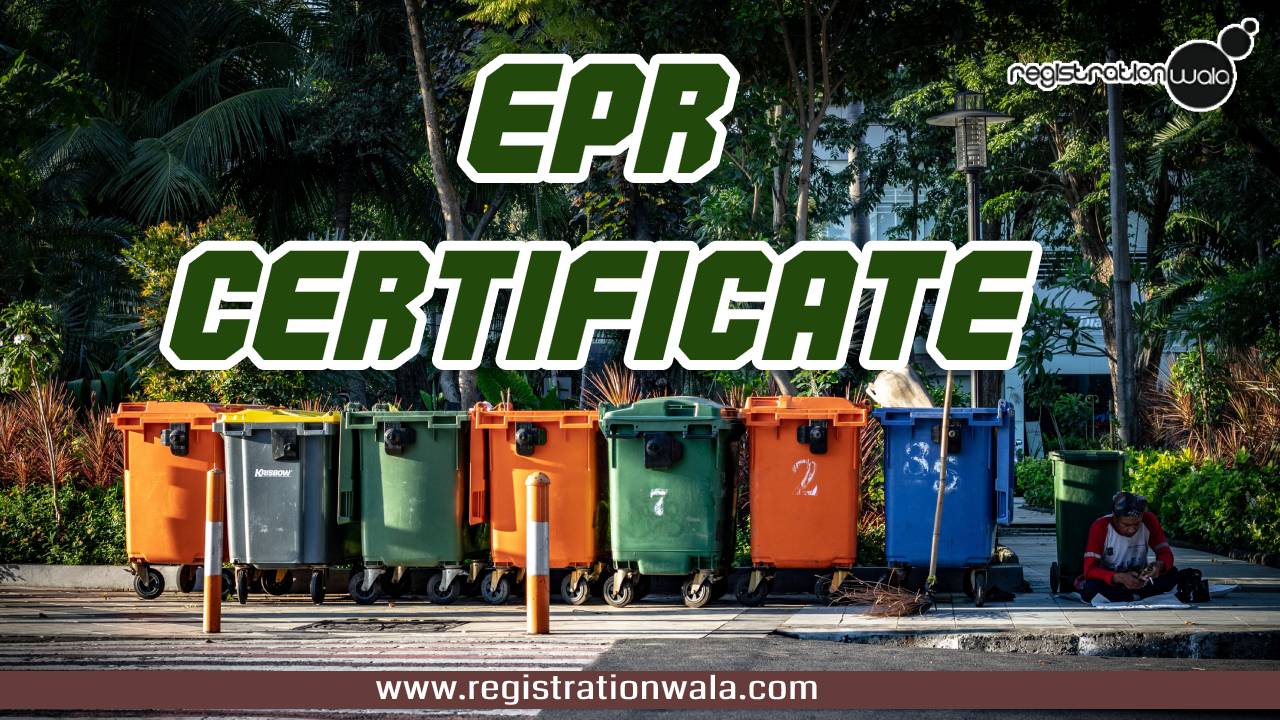EPR License came into existence because the government understood that plastic was damaging everything. Even though it took India till 2012 to implement that EPR registration certificate is mandatory, the government still hasn’t made people aware of the license.
EPR License
IF you think that merely getting a shop and establishment license or the manufacturing license from the MCD will allow you to provide electronics in India, you’re wrong. EPR License, a way to bestow upon an Extended Producer Responsibility is also required.
Thus, through this article, we are going to tell everything about the EPR registration that the government of India has missed. From the need to process to everything else, by the time you’re reading this article, you’ll even know how to get the license easily.
The need for EPR License
EPR, as a concept first came back in 1990 in Sweden. The government had the foresight to see the devastation plastic and electronics products can cause if they are left unchecked. Thus to deal with these electronic wastes, the created a principle of taking away. As per the “Take away”, the manufacture has the moral obligation to take away the product from the customer once the product becomes obsolete or beyond repair. It works in two ways:
- It allows the environment to be protected because the customers weren’t throwing the product in the dustbin.
- It ensures that the products are recycled to extract the non-renewable resources from them.
When plastic entered into the picture, EPR’s importance became even more pronounced. Thus, in order to maintain a leash on the use of plastic, countries around the world started to adopt EPR laws. However, it wasn’t until 2012 that India thought that we need it too.
EPR registration full form is Extended Producer Responsibility. As a producer, you get bestowed with the responsibility of e-waste management by this license. If you don’t, you can lose your business and get penalized in more ways than one.
Other Useful License: How to Start Infrastructure as a Service in India?
The points of the EPR registration process
The process to acquire the EPR registration certificate involves an online method where:
- Application for EPR registration online is first filed alongside the documents.
- Submission of the above leads to the Central Pollution Control board to assess the application.
- Inspection takes place
- License is granted by the CPCB.
Without EPR Certificate, you can’t obtain the right to start a manufacturing facility for electronic products.
In order to understand the process even better, we recommend that you go through the EPR certificate format. It will give you an idea of the documents that you need because they vary at times, regardless of how much precise your current information is about them.
The documents that are needed to be attached with the EPR registration form
Following is a list of documents that are initially asked by the CPCB for EPR license:
- Details of your manufacturing plant or importing dock (You need an EPR certificate for import in India in case you want to import e wastes)
- Complete contact details of the applicant. You need to be a genuine applicant. If you’re not the CPCB won’t be able to contact you.
- PAN card copy. That PAN card can be yours of your company’s
- Documents of the person you have authorized to sign your documents
- Products details including their model numbers and their import history (the latter is important for EPR registration for import)
- BIS license copy, if you’re manufacturing products for which getting a BIS license, is mandatory
- ROHS Compliance certificate. It’s a preliminary certification needed before you can apply for the EPR certificate
- Recycler details. Whether the recycler is in-house or someone you’ve outsourced the recycling duties to.
- Estimation of the amount of E-waste generated every day.
- The estimated budget you’re spending on your duty as an EPR. EPR certificate means taking on the responsibility and by telling the government about the budget you’re spending on that duty, tells the authority that you’re taking the matter seriously.
- Details of awareness programs, if any, you have created to spread awareness about E-waste management.
- The EPR plan
- Copy of the contracts you have signed with recyclers
- Website content about E-waste management.
Conclusion | EPR License: The need, The Process and Everything Else
To through the trials and tribulations of EPR registration means that you’re willing to take on the responsibility of managing the wastes that result in the production of electronics. As the license is mandatory, it’s not a responsibility that you can shrug-off. But as the process is difficult, you’re also allowed to get any help you need. We are ready to assist you.
